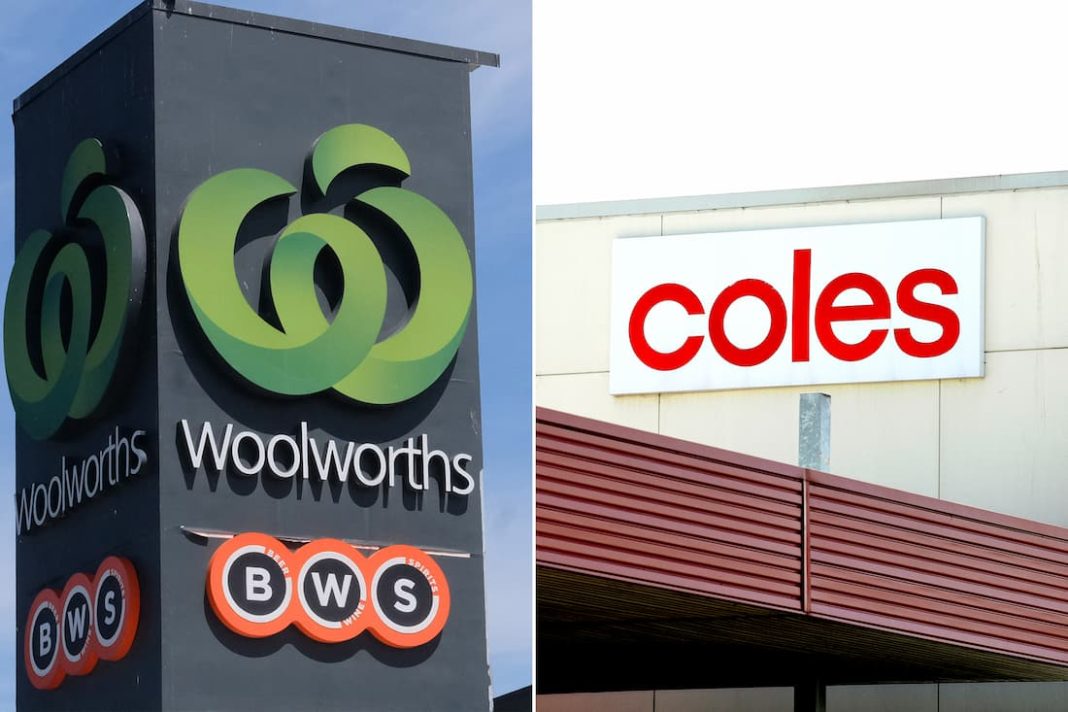While many businesses are charging higher prices, the everyday nature of grocery shopping and consumer’s suspicions about being kept in the dark has them mostly blaming supermarkets for cost-of-living issues.
An Australia Institute survey of more than 1000 people suggests 83 per cent of people believe supermarkets are responsible for a great deal or some of the blame for financial pressures.
More than four in five blamed energy companies, while 73 per cent said the onus was on banks and 71 per cent on the government.
Asked about the most visible source of rising prices, three in five people said groceries, 21 per cent utilities and seven per cent transport.
Report co-author Leah Heap said the message from consumers was loud and clear.
“Australians are pointing the finger at supermarkets as public enemy number one in the cost-of-living crisis,” she said.
“It’s clear Australia’s supermarket duopoly is on the nose with the electorate.”
A Woolworths spokeswoman said there were a range of factors behind rising costs.
“Many of the increased costs households are facing are also unfortunately making it more expensive for our suppliers to producers food and groceries – from electricity and fuel, to rent and interest rates,” she said.
Coles was also contacted for comment.
But Swinburne University law and corporate governance specialist Helen Bird said there had been a perception among consumers that supermarkets were not being entirely up front.
She said the amount of time people spent at supermarkets also affected perceptions.
“There’s the feeling that shoppers aren’t getting the full story,” she told AAP.
“(The sentiment against supermarkets) has to do with the essentiality of the products because everyone has to eat.
“If the price of electricity goes up, you feel it, but not like day-to-day … you feel it at the checkout because you pay more immediately.”
Chief executive of the Australia Food and Grocery Council Tanya Barden said the entire food supply chain was under pressure, which was behind price rises.
“The uncomfortable reality is food manufacturing in Australia is under immense pressure. Commodities like cocoa, sugar and packaging as well as energy and gas prices have all risen and unfortunately show no sign of easing,” she said.
“In this supply-led inflationary environment we need supply-side solutions. Support from government for domestic manufacturers to boost productivity will be vital in easing that inflationary pressure.”
Coles and Woolworths have for months been accused of ripping off suppliers, suffocating competitors and price gouging customers.
The Australian Competition and Consumer Commission has taken Coles and Woolworths to the Federal Court, after accusing them of misleading discount pricing claims.
Anthony Albanese has gone after the two supermarkets for shrinkflation – when items decrease in size or quantity while prices stay the same.
The Nationals have been pushing for the forced break-up of the giants, while Opposition Leader Peter Dutton has accused them of muscling out competition by holding undeveloped land near their stores.
A Resolve poll found 85 per cent of people supported the consumer watchdog taking action against the major supermarkets.
The same poll showed half those surveyed backed a proposal by the opposition for supermarkets to be broken up if they had too much market power.
Coles and Woolworths make up about two-thirds of Australia’s supermarket sector.



